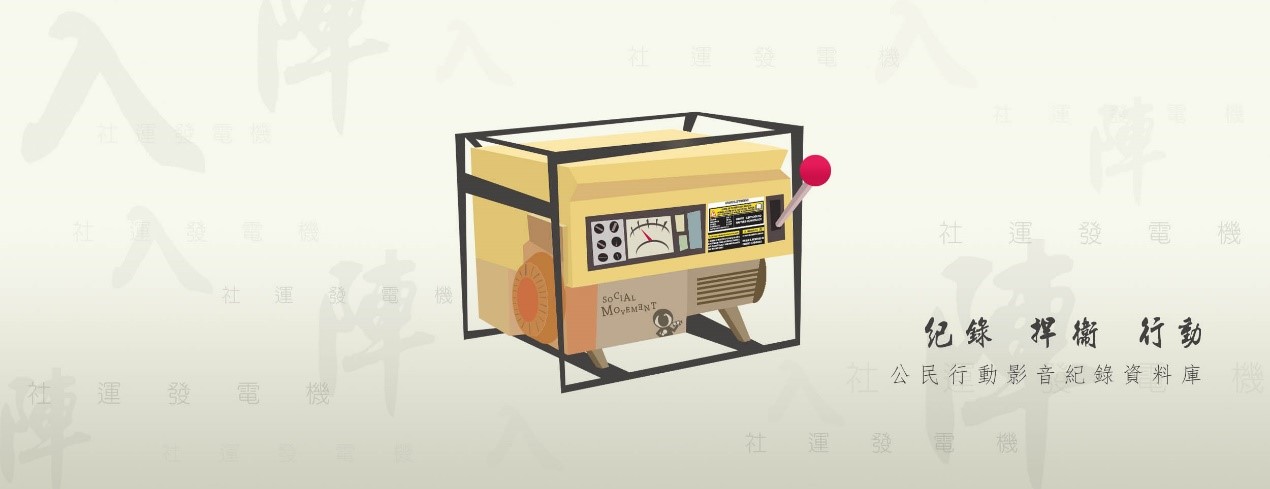文/在臺香港學生及畢業生逃犯條例關注組
各位好,我們是在臺香港學生及畢業生逃犯條例關注組。
是次香港《逃犯條例》修訂草案,又稱送中條例,源於一宗港人在臺殺人案,疑犯陳同佳於2018年2月在臺犯案後潛逃香港,並於同年3月被香港警方拘捕。同年12月臺北士林地檢署正式通緝疑犯陳同佳,港臺之間並無引渡協議,臺灣政府無法要求香港特區政府移交罪犯回臺受審。香港法院則基於司法管轄權問題無法以謀殺罪審議,最終只能以洗黑錢罪判其入獄29個月。因應此案,香港特區政府認為有必要堵塞港臺之間的「法律漏洞」,故此提出《逃犯條例》修訂,容許香港與中國大陸、澳門、臺灣等未有移交逃犯協議地區,以單次「個案移交」安排引渡疑犯,以便處理日後同類事件。
然而,《逃犯條例》修訂草案馬上引起社會各界包括商界在內各階層之憂慮及巨大爭議。修法後將大幅放寬引渡條件、流程,世上任何國家包括北韓、伊朗在內沒有簽署《公民權利和政治權利國際公約》等國家都可以提出引渡要求,共有37項罪名。申請國只要提供表面證供文件,再由香港特首同意,就可以提出引渡要求,不須經立法會審查,同時香港法院有效的把關措施。若中國大陸要求引渡如「銅鑼灣書店事件」的林榮基等人隱含「政治目的」檢控時,特首和北京關係不對等,試問特首能否違抗中央指令呢?
條例根本問題在於中國與香港特區兩地法制存極大差異,而中國的人權保障情況讓人非常憂慮,犯人一旦被移送至大陸後無法得到應有公平審訊以及人權保障。以上同樣是香港自1997年主權移交以來,特區政府一直沒有與中國大陸簽訂引渡協議的原因之一,這並不是「法律漏洞」,而是分隔中港兩地法制的「防火牆」之刻意安排。
另一方面,《逃犯條例》修訂背後所涉及兩岸關係等政治議題。「為什麼一宗港人在臺殺人案所引起的修例會涉及至中國大陸?」需知道,移交逃犯是意昧兩個主權國之間的協議,若港府單獨與臺灣簽訂引渡協議,變相承認臺灣的國家主權。有見及此,港府勢必令修例的涵蓋範圍同時包含中國大陸以及澳門,確保在「一個中國原則」的框架下處理之。近日港府對於《逃犯條例》修訂作出調整,當中「只處理由司法管豁區中央機構提出的引渡要求」;假如修例通過,在處理這宗臺灣殺人案時,假若臺灣當局以司法最高行政機關「中華民國法務部」代表其司法地區,港府又能否承認「中華民國法務部」代表臺灣?《逃犯條例》修訂從本地修法的層次上昇至兩岸關係的層次,反而無法再處理引起一切風波的臺灣殺人案矣。
自臺灣殺人案發生後,臺灣檢方曾三度提出司法請求與會商要求,唯未得港府回應。臺灣陸委會表示,不接受港府以「一個中國原則」為前提與臺灣進行交涉,希望港府能以平等、尊嚴及互惠等前提下進行司法互助合作。同時擔心修例通過會影響過境香港、旅港及在港臺灣居民之人身自由安全,若將來情況惡化至無法保障則考慮對香港發出旅遊警告。
以上種種情況已經引起多國強烈關注,進一步上昇至國際外交層次並引起重大外交風波。歐盟28國史無前例地發出外交照會強烈反對修例、有美國國會議員建議重新審視《美港關係法》,加拿大、澳洲、日本等多國均表明反對修例。多國甚至聲言將取消香港免簽證待遇,特區護照喪失效用。《美港關係法》及其帶來的獨立關稅地位岌岌可危,嚴重影響外國企業繼續在港經營意願。屆時,香港在國際地位、人權保障、經商貿易多方面都將受到重大損害。
《逃犯條例》修訂將嚴重損害香港核心價值與各方利益,敝關注組敬請香港政府不應倉促修例。恪守法理,以民意為基礎,以香港為目的,處理相關法案,並認真考慮各界人士,尤其是法律界人士之意見。香港作為國際都會城市,理應充分考慮符合各界利益,令香港保有現有之自由法治以及經貿地位,維護香港利益。
We are a group of Hong Kong students studying in Taiwan and Hong Kong alumni of Taiwan Universities. We have deep concerns about the Fugitive Offenders and Mutual Legal Assistance in Criminal Matters Legislation (Amendment) Bill 2019, which was proposed purportedly to facilitate an extradition request in respect of a Hong Kong suspect in a homicide case in Taiwan. The suspect, Chan Tong-kai, fled to Hong Kong after the murder in February 2018. He was arrested by the Hong Kong Police in March 2018. Taiwan Shilin District Prosecutors Office officially requested Hong Kong to extradite Chan in December 2018. However, extradition arrangements between Hong Kong and Taiwan have not been possible because Hong Kong, following the official policy of the People’s Republic of China, regards Taiwan as part of ‘China’ and, quite justifiably, Hong Kong law does not currently permit extradition to China. Meanwhile, the courts in Hong Kong could only charge Chan with murder because he did not commit the crime in Hong Kong. He was instead charged with money laundering and was sentenced to twenty-nine months of imprisonment. Using the case as an excuse, the Hong Kong government proposed the aforementioned bill to enable the extradition to jurisdictions with which Hong Kong has no formal extradition arrangement, including Mainland China, Macau, and Taiwan.
The bill has at once aroused the concerns of Hong Kongers from all sectors, including the business sector. The amendment will significantly relax the constraints on extradition. It will allow the Hong Kong government to extradite suspects to countries that are not signatories to the International Covenant on Civil and Political Rights, for 37 different kinds of criminal charges, without the approval of the Legislative Council, so long as prima facie evidence is provided, and the Chief Executive agrees. If the PRC government is to request extradition in such cases as that of Mr. Lam Wing-kee, the victim of the Causeway Bay Books disappearances, is the Hong Kong government really prepared to deny the request?
The nub of the issue lies in the vast differences between the legal systems of mainland China and Hong Kong, in particular in terms of protection of human rights. Suspects will be deprived of their right to a fair trial and their other human rights will henceforth be at stake when they are extradited to China. This is the very reason why the Hong Kong colonial government had excluded China from the application of Hong Kong’s extradition laws before the city’s sovereignty was transferred to China in 1997. This is not a loophole to be closed but a conscious attempt to separate the legal system between Hong Kong and mainland China.
We also doubt that the amendment, if passed, will facilitate extradition between Hong Kong and Taiwan. In truth, it will damage the independent status of Taiwan. The Hong Kong government recently proposed a further amendment which stipulates that extradition requests could only be made from the country’s top legal authority. Given that the PRC government regarded Taiwan as part of China according to the “One-China policy”, if the amendment is passed and the Ministry of Justice of Taiwan duly requests extradition, will the Hong Kong government comply?
In fact, Taiwan’s prosecuting authority has asked the Hong Kong government for legal assistance in relation to the murder case three times, and no response has ever been received. The Mainland Affairs Council of Taiwan has indicated that they will not sign any extradition deal with Hong Kong if it is based on the “One-China policy” rather than equality, dignity, and reciprocity. The Taiwan government has also expressed concerns that the amendment will compromise the safety of Taiwanese when they visit Hong Kong, and it will consider issuing a travel alert for Hong Kong if the law is passed.
The amendment has also aroused the concerns of many countries and now become a diplomatic issue. In an unprecedented move, the European Union lodged a démarche to oppose the amendment. Some US lawmakers even propose to re-examine the “United States-Hong Kong Policy Act”, which at present recognises Hong Kong as a separate customs territory from mainland China. Other countries including Canada, Japan or Australia have also registered their opposition and suggested that they may cancel the Visa-free access for HKSAR passport holders. As such, the amendment will strike a severe blow to the international prestige, human rights protection, and the economy of Hong Kong.
For these reasons, we urge that the Hong Kong government refrain from proceeding with the amendment in haste, adhere to the rule of law and listen to the voice of people, especially the views of the legal profession, with the interests of all in society at the forefront of its mind.




